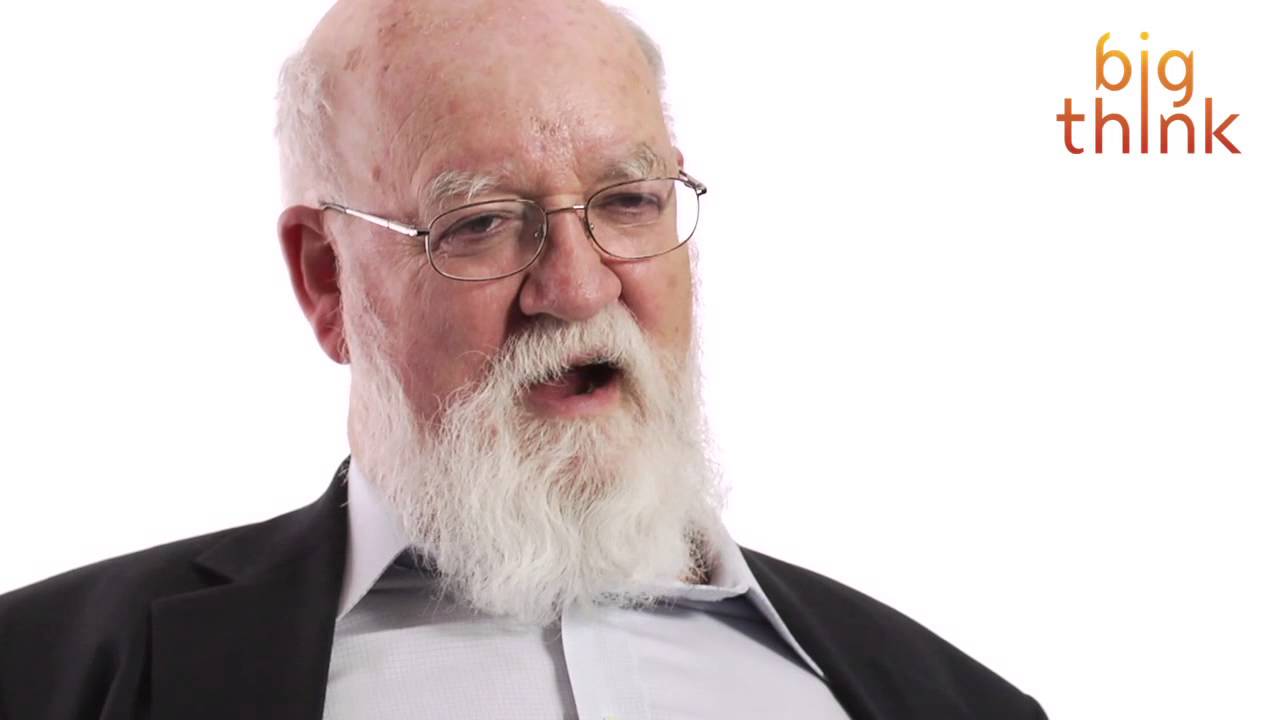Big Think
New videos DAILY: https://bigth.ink/youtube
Join Big Think Edge for exclusive videos: https://bigth.ink/Edge
———————————————————————————-
———————————————————————————-
ABOUT BIG THINK:
Smarter Faster™
Big Think is the leading source of expert-driven, actionable, educational content — with thousands of videos, featuring experts ranging from Bill Clinton to Bill Nye, we help you get smarter, faster. Subscribe to learn from top minds like these daily. Get actionable lessons from the world’s greatest thinkers & doers. Our experts are either disrupting or leading their respective fields. We aim to help you explore the big ideas and core skills that define knowledge in the 21st century, so you can apply them to the questions and challenges in your own life.
Other Frequent contributors include Michio Kaku & Neil DeGrasse Tyson.
Michio Kaku Playlist: https://bigth.ink/kaku
Bill Nye Playlist: https://bigth.ink/BillNye
Neil DeGrasse Tyson Playlist: https://bigth.ink/deGrasseTyson
Read more at Bigthink.com for a multitude of articles just as informative and satisfying as our videos. New articles posted daily on a range of intellectual topics.
Join Big Think Edge, to gain access to a world-class learning platform focused on building the soft skills essential to 21st century success. It features insight from many of the most celebrated and intelligent individuals in the world today. Topics on the platform are focused on: emotional intelligence, digital fluency, health and wellness, critical thinking, creativity, communication, career development, lifelong learning, management, problem solving & self-motivation.
BIG THINK EDGE: https://bigth.ink/Edge
If you’re interested in licensing this or any other Big Think clip for commercial or private use, contact our licensing partner, Executive Interviews: https://bigth.ink/licensing
———————————————————————————-
Follow Big Think here:
📰BigThink.com: https://bigth.ink
🧔Facebook: https://bigth.ink/facebook
🐦Twitter: https://bigth.ink/twitter
📸Instagram: https://bigth.ink/Instragram
📹YouTube: https://bigth.ink/youtube
✉ E-mail: info@bigthink.com
———————————————————————————-
Source




"Heaven is a great expression of God's generosity towards us"
Yes, imagine an eternity of blissful existence knowing that some of your friends and relatives are burning forever and ever. Meanwhile you, knowing this distasteful fact, will also exist forever and ever, never forgetting. You can almost hear the screams from the clouds edge. Ain't Heaven a hoot?
What's that you might want to say? Your flavor of deity removes memories? Of relatives? What if it's Mom, or Dad? Implant memories?
Dennett's example of "he'll have to fly like superman" is not a reductio ad absurdum. The example would fit better within certain types of inductive reason applied to deductive reasoning, while the latter is only a deductive argument. A reductio is always and only a contradiction implied by the premises of an argument. Incidentally Dennett is one to talk about "navel gazing" philosophers as someone who was on the way to obscurity before joining the "new atheist" cadre.
You just simultaneously ignored air resistance and took it as a premise. Good job.
This guy has got to be one of the most overrated intellectuals of the 20th century. Consciousness Explained should be retitled Consciousness Explained Away. He always seemed like a Darwin wannabe, even in appearance, which is strange
Just wanted to say that.. Respect.
Actually, Chapter 14, section 4 in 'Consciousness Explained' is titled 'Conscious Explained, or Explained Away?' So clearly you haven't read the book you're criticizing.
Right, he wrote a 500-page book about consciousness because he thinks it's "irrelevant". -_-
A reincarnation:-)
"Consciousness explained – away…" Absurd – from start to finish.
Stefan Molyneux.
One philosopher who is so extremely in tune with his emotions and introspection.
arch22, your point about parachutes misses a big point.
parachutes, under the same conditions would fall at the same speed, and the principle indeed does apply to any and all objects. The conditions for that scenario was this: in absence of air resistance.
But you were talking about air resistance. The equations and physics of air resistance is completely different from the equations governing acceleration of a body under the influence of gravity.
So your statement that the line of reasoning applies to parachutes is true, as it would be with any object, so long as we're talking about under air-resistance-free conditions. It does apply to any object, and it is all consistent.
What you did was validly switch the object, but picked one that would lead the reader to infer that the scenario now applies to air-resistance, when the original stipulation limited the uniform acceleration of falling objects to air-resistance-free conditions.
The Superman example was terrible and the Galileo one was too dated and trite. Use ones that apply today, if you can, that viewers might use. Gosh! Think, man! You have a poor imagination. All that time to think and you came up with nothing. Amazing! This is why people have contempt for philosophy. You act as if you think you are so smart, then can't deliver the goods. Here's an everyday reductio. A young lawyer says he's going to put in his fee agreement, with his clients, that he can't be sued for negligent legal advice. The client will sign it as part of the boilerplate. That should be great for his firm's legal malpractice exposure, eh? His boss says, "Sonny, if we could all waive our own torts like that, then legal malpractice would not even be actionable at law by now, but it is; and we would not be insured, but we are."
The Galieo examples is also incorrect. Heavier objects do fall faster. That's the theory of gravity.
When Newton was 'hit on the head by an apple,' which never happened incidentally, the inspiration he discovered wasn't gravity. It was fairly well known at the time that dropping things made them fall. He asked "what if the moon fell?" And specifically, if there was a predictable equation that determined its rate of falling.
There was one–via the inverse square law, an ellipse. The exact shape that earlier astronomers had proposed that celestial bodies follow in a heliocentric system.
In his rock a, rock b example, there IS a drag put on the force of rock b, in the sense he means it. Which is to say, some of the acceleration imparted on the heavier rock is instead redirected to the lighter rock. That is how hot air balloons work. A much lighter material is attached above a much heavier material. If the the lighter material is sufficiently less massive, the object as a whole achieves upward momentum.
It's really simple. Consider: where does gravity come from? Mass. Where does weight come from? Mass. Therefor, heavier objects, are more massive objects, impart more gravity, and fall faster. QED.
All philosophy is speculation. In science this is sometimes called hypothesizing. However, when an hypothesis is demonstrated by experiment to be true, then unless it is disproven by later investigation, the hypothesis is called a theory.
a philosopher has no opponent
His book was well worth the read.
Practice of Reductio ad Absurdum … Daniel Dennett cannot be an atheist or a rational thinker. Because an atheist and a rational thinker will also not believe in Christmas and thus not Santa Clause. But he looks exactly like Santa Clause…
Hahahabha. 'Absurd, nobody can fly that fast!'
Mind experiments are great fun, but they are often impossible to verify by experiment. That is both the glory and limitation of science.
Milton Friedman used to use Reductio ad Absurdum arguments all the time.
What does his button say?
So I looked up what a philosopher is, and it says some one who studies philosophy. Looked up philosophy and says: the study of reality…. I so confused isn't that what a scientist is …
So when Sam Harris gave that funny argument comparing believers in god to people who believe Elvis is alive. Is the reductio ad absurdum, or something else?
I have one issue with reductio ad absurdum, if I ask someone how did they learn a certain thing and they respond "well I don't know? it would be impossible for me to remember how I learned everything"? is that is a reductio ad absurdum (or a strawman and where is the line?)? but the fact is I can indeed remember how I learned something and not others…
"Nobody can fly that fast!"
he explains it so simply and so well
The ''εις ατοπον επαγωγη'' (sry for being greek) aka ''reduction to the absurd'' is the no1 tool/technique for debunking troll arguments.If you practice it you will find a great conversational hammer that will break any irrational and provocative smartass.So stop trying to shut trolls by proving YOUR point…instead follow their premise/argument and with small baby steps and questions let them fall into their hole they are digging during the whole talk.
i will leave you with a nice topical example:
Troll deductive logic: NASA is providing CGI which are fake on how earth is round, therefore earth is flat!
Here comes Socrates: Flat Earthers are providing CGI on how earth is flat , therefore they are fake too! 🙂
how best can we asign this theory to a periodic table? and measure it. may be there is a possibility to loosen the strengths of gravity and make life lighter. we never know instead of measuring the falling rate may be we might be able to fly, if there is a better measuring standards to balance the force of gravity. probably one day we might, so far it looks more distant in time though.
The fallacy of the large size of the set of possible outcomes or Reductio ad absurdum (Strawman argument) is best shown by rolling a die three times in a row. The odds of getting any particular outcome is 1/6 x 1/6 x 1/6 or 1 in 216. What is more likely, that this outcome came from rolling the die honestly or was engineered by some virtual reality or a god?
heavier things fall faster than smaller things due to air resistance? make a paper ball and then have a lead ball and drop both
Half a millennium, not several. Perhaps meant several centuries.
FALLACY, we hear the wuus shouting
His greatest intellectual achievement is growing that stupid beard.
Surely if you could say the lighter object acts as a drag on the heavier slowing it down, then it's equally valid to maintain the heavier would drag on the lighter thus speeding it up, so cancelling the effect. Why didn't Galileo mention this or put it this way? Did it take Newton with his third law?
that sounds like a legit Harry Potter spell…
Didn't know the Galileo "reductio ad absurdum" argument… That's amazing. Physics and Logic tied together by God's Rules of Universe.
It often seems taking an idea to it's logical, and rational, absurdity is justified and within reason. It all depends on the methodology.
So…what's the problem with reductos?
These are terrible examples. A better one is ironically one that people don’t realise is absurd is
“The best way to stop a bad man with a gun is a good man with a gun.” Premise being the gun isn’t the issue but the calibre (lol) of the man is.